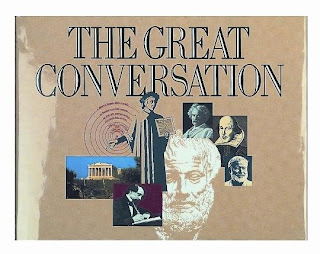This is a fascinating book!! I'm only 3 pages in and I've had to re-read certain sections several times to begin to understand what is going on. I've been looking at maps of the Persian Empire to get a better picture of where this is all happening. Here's a map:
Look in the upper left-hand corner of the green area and you will see Lydia. This is the area where the story begins and Sardis is right next to it, that's the capitol of Lydia.
KIDNAPPED WOMEN
Herodotus begins his history by explaining that first, the Phoenicians kidnapped some Greek women, including a Princess; then the Greeks kidnapped the Phoenician Princess; then about 20 years later, Alexander, son of Priam kidnapped the Greek princess, Helen. This last kidnapping was what angered the Greeks and caused them to gather troops, invade Asia and destroy the kingdom of Priam, beginning the Trojan War.
Then Herodotus says, "I shall proceed at once to point out the person who first within my own knowledge inflicted injury on the Greeks..." He explains that this man is Croesus and he is "the first of the barbarians who had dealings with the Greeks...He conquered the Aeolians, Ionians, and Dorians of Asia, and made a treaty with the Lacedaemonians. Up to that time all Greeks had been free." I guess this means that he's going to show how Greeks came into Persian rule since this book is the history of 4 Persian kings and the Persian Empire. FASCINATING!
VENGEFUL WOMAN
Herodotus then relates another story about a woman: the story of Canaules and how he lost his kingdom. This story reminds me of an event in Don Quixote where the same kind of thing happened. Anyway, this Canaules, king of Sardis- the city on the map above- loved his wife and thought she was the most beautiful woman in the world. So he tells his servant that he should see her naked and then he will know how perfect she is. Problem is, it was a deep disgrace in this culture to have anyone-man or woman-besides your spouse see you naked. Well, Gyges, the servant knows this is wrong, he calls it "wicked" but Canaules gives another argument and Gyges, "unable to escape," goes along with it. As he leaves the couples' bedroom, he is seen by the wife. Surprise, surprise. And she is angry and decides to get revenge on her husband.
She calls Gyges in the next day and tells him that she knows what happened and he can either kill her husband and marry her or be killed right then. He begs the queen to not make him do it. But, unfortunately "seeing that he had no retreat or escape...he made the choice of life for himself." Surprise, surprise again. He kills the king while he sleeps in his bed, marries the queen and becomes the first barbarian king.
Here's the great part for him and the queen: the Delphic oracle confirms his possession of the throne but warns that in the fifth generation there would be vengeance. I guess we will see if that prophecy is fulfilled.
There are a couple of things that really interested me in this story:
FATE
Everything is fated. It's a lot like Iliad and Odyssey in this way. Individuals don't have freedom of choice or they get off the hook really easily. There aren't gods making them do things but there are several passages that show that such and such just
had to be: "who was fated to end ill," unable to escape," "against my will," "seeing that he had no retreat or escape." This is especially true of Gyges. He makes several choices that
he indicates are directly against his conscience but in the end he gets to be king and it's all settled with the people by the Oracle and everything turns out peachy for him.
WOMAN ORACLE
I was curious about the oracle. I have heard a lot about it but didn't understand how it really worked. I did some research and found out that people at this time went to the oracle with all kinds of personal and political problems and the oracle was always trusted, if not always obeyed. It was totally legitimate for people to resolve international concerns through the oracle.
So who was the oracle? The oracle is an older woman who had led a blameless life and is chosen from among the local peasants-so she's totally ignorant and probably easily manipulated (just my thoughts). There is a place at Delphi, the most popular oracle, where it is said that Apollo killed Python and threw him down a hole. From that hole is said to have been emitted some kind of gas (because Python was thrown in there) and when someone wanted an answer from the oracle, this woman the Pythia or sibyl or priestess would sit on a stool over this hole and "rave." No one could understand her except the priests who would "translate" what she said and put it in "elegant hexameter." These verses the priests wrote would tell the person what Apollo wanted them to know- answering their questions and prophesying the future. That is how Gyges got to be the king. Hmmmm...
Map of the Delphic oracle and a picture of the area:














